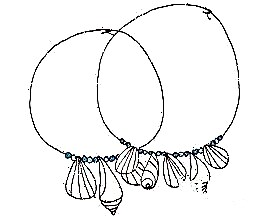Share
Pin
Tweet
Send
Share
Send
Shelves are lined with cosmetics that promise health and beauty. We tell you, the means with which composition of substances will never do this.

Every woman knows: for the skin and hair to shine with health, they need to be taken care of. Every day we use a whole arsenal of products: shampoos, balms, gels, oils, creams, masks, scrubs, tonics and much more. But if unsafe components are present in the composition of the product, then such cosmetics not only do not bring benefits, but also cause significant harm to our beauty and health. How to choose harmless products?
Let's deal with Lisa.ru!
What cosmetics are considered natural?
When you see the inscription "made from natural ingredients", do not rush to put the tube in the basket. Now humanity is experiencing a boom in the natural, organic and everything with the prefixes "eco", "phyto" and "bio." In particular, this trend has touched the field of cosmetics. On almost every gel, the inscription "from natural ingredients" or "with herbal extracts" flaunts. But do not take the word for the manufacturers.
Cosmetics, the composition of which includes at least one natural component. These are the standards. Real organic cosmetics are marked with certain quality marks.Such funds are expensive and are rarely found in the mass market.

Eco-Labeling Natural Cosmetics
Is it possible to find funds without preservatives?
To avoid preservatives does not work at all, because they are added even to expensive certified cosmetics made from organic components. How so?
The fact is that there are safe preservatives that are approved by international quality control organizations. If included Potassium Sorbate, Sodium Benzoate, Benzyl Alcohol, or Citric Acid, then you can be calm - these substances are safe.
Avoid the same components with ending "paraben". There is no unequivocal scientific opinion on the effect of parabens on the body, but some European conventions add them to the list of hazardous substances. This is because in the body parabens act as estrogens, which can lead to hormonal imbalances and various disorders. The only advantage of parabens is their hypoallergenicity.
Along with parabens harm our health Diazolidinyl Urea, Imidazolidinyl Urea, Bronopol, Bronidox, DMDM-Hydantoin, Quaternium-15, Methylisothiazolinone. These elements also belong to harmful preservatives.
If understanding chemical names seems like overwhelming work, then you can follow these tips:
Choose dark jars
Cosmetics in transparent jars deteriorate faster, as they are exposed to sunlight. Such products will contain more preservatives. If there is an alternative in a tube of dark plastic or glass, give it preference.

Means where there is a lot of water, choose carefully
Absolutely no preservatives are only dry cosmetics, consisting of powder. If there is a lot of water in the product, there are many preservatives. When choosing a liquid, do not be lazy to study the composition and choose the safest remedy.
Why is it better to avoid silicones?
Silicones provide an instant effect from the use of the product. After the first wash, you can notice improvements in the condition of the hair - they become smooth and soft to the touch. What is the catch?
Accumulating, silicones create a film on the hair, which prevents the penetration of oxygen and nutrients. These substances do not improve the condition of the hair, but only create the appearance of their health.
Silicones do not have a critical effect on our body, but they are extremely harmful to the environment, since most of them do not decompose. That is why European associations add silicones to the stop list, because they care not only about our health, but also about the ecology of our planet.
Pay attention to components whose names end with "conol", "cone" and "lyol" - these are silicones. For example, Dimethicone.
Soft and aggressive surfactants: what is the difference?
Surfactants are the chemical components of almost any cleaning product, including shampoo, shower gel, bath foam, toothpaste and toilet soap. It is surfactants that allow the agent to foam.

Certified natural cosmetics use mild surfactants that are not harmful to health. Such components are expensive, which is why manufacturers of mass cosmetics use cheaper analogues - aggressive surfactants.These elements are harmful in that they destroy the natural fat film of our skin, causing peeling, irritation and even allergies. Penetrating into the body, they cause significant harm to health. Such surfactants are obtained from petroleum products.
The most aggressive are sulfates Sodium Lauryl Sulfate and Sodium Laureth Sulfate (SLES, SLS), Ammonium Lauryl Sulfate and Ammonium Laureth Sulfate.
What else to fear?
Without stabilizers and thickeners, the product cannot be uniform in consistency, but the elements used in mass production damage our beauty and health. This includes various PEGs and everything related to DEA and TEA.
It is worth avoiding paraffin, petroleum jelly and petrolatum. The common name of these elements - mineral oils - deceives, resembling an organic component. However, these substances have nothing to do with naturalness and utility - it is extracted from oil. Mineral oils disrupt the normal development of cells in our body and is one of the most common causes of skin inflammation. A similar effect has a component called bentonite.
To summarize
Carefully study the composition, because the safety of components is the key to your beauty and health. Remembering the names of critical ingredients and the eco-certificate badges, you can find harmless products in almost any store. Take a look at unfamiliar companies - often unknown brands are natural, as they spend money on organic substances, and not on advertising.
You will find even more interesting articles on Lisa.ru!
Share
Pin
Tweet
Send
Share
Send



